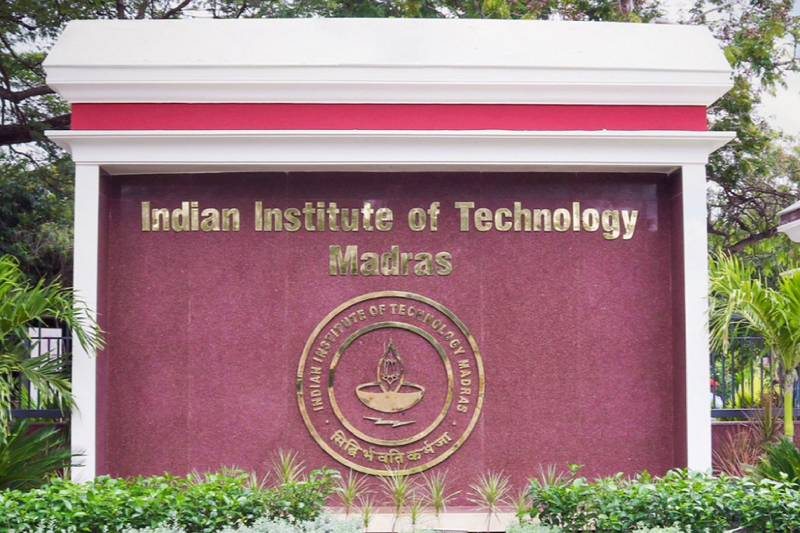
IIT Madras Launches School of Innovation and Entrepreneurship to Power Global Deep-Tech Start-Up Ecosystem
The Indian Institute of Technology Madras (IIT Madras) has taken a decisive step towards strengthening India’s deep-tech start-up landscape by launching its School of Innovation and Entrepreneurship. Inaugurated on August 4, 2025, this new school is designed to institutionalise the institute’s fast-growing entrepreneurial ecosystem and position IIT Madras among the leading entrepreneurial universities globally.
The school aims to provide a structured, scalable platform for deep-tech innovation, bringing together academic programmes, incubation facilities, financial support, and industry partnerships under one umbrella. It will operate as part of the School of Interdisciplinary Studies, headed by Prof. Anbarasu Manivannan.
A Vision for a Global Deep-Tech Hub
The official inauguration was led by IIT Madras Director Prof. V. Kamakoti, in the presence of faculty members, students, start-up founders, alumni, and industry leaders. The founding head of the School, Prof. Prabhu Rajagopal—a Shanti Swarup Bhatnagar Awardee and faculty member from the Department of Mechanical Engineering—has been a driving force in fostering student-led innovation at IIT Madras. His earlier contributions include leading the Centre for Innovation (CFI) and the Nirmaan pre-incubator.
Prof. Kamakoti highlighted the institute’s remarkable achievements in innovation:
“As we progress after having achieved 1.2 patents a day and exceeded 100 start-ups in the last financial year, it is time to institutionalise our Innovation and Entrepreneurship efforts. This School is going to be another USP of IIT Madras.”
The enthusiasm of IIT Madras alumni has been a key pillar of this vision. The IITM Alumni Fund has already secured near-complete commitments towards its ₹200 crore target to invest in start-ups emerging from the institute.
A Proven Track Record in Deep-Tech Innovation
Currently, IIT Madras is home to India’s largest deep-tech start-up ecosystem. Over the years, it has incubated more than 475 start-ups valued at over ₹50,000 crore (USD 6 billion). These ventures have collectively:
- Created 11,000+ jobs
- Filed 700+ patents
- Attracted ₹12,000 crore+ in funding
With the launch of the new School, the institute plans to accelerate this growth through targeted academic programmes, funding support, and mentorship.
Structured Academic Programmes for Entrepreneurs
The School of Innovation and Entrepreneurship will offer a range of degree programmes, catering to different stages of the entrepreneurial journey:
- Minor in Entrepreneurship – For undergraduate students seeking early exposure to innovation and business creation.
- MS in Entrepreneurship – A postgraduate track combining research with venture development.
- PhD in Entrepreneurship – Aimed at developing thought leaders and deep-tech researchers with entrepreneurial ambitions.
- Innovation Doctorate – An industry-focused doctoral programme for high-impact, application-driven research.
Bridging Industry and Academia with New Initiatives
A standout feature of the school is its Entrepreneur-in-Residence (EIR) initiative, designed to support professionals returning to academia to build start-ups. The school will also establish:
- Dedicated funding mechanisms for early-stage and scale-up ventures.
- Regular Intellectual Property (IP) clinics to convert student innovations into commercially viable, IP-protected products.
Prof. Ashwin Mahalingam, Dean of Alumni and Corporate Relations, noted that the school will act as a unified pipeline, linking:
- Evangelisation – Inspiring innovation and start-up thinking on campus.
- Curricular Support – Embedding entrepreneurship into academic coursework.
- Pre-Incubation – Providing mentorship and workspace for idea development.
- Incubation – Offering funding, industry access, and business scaling support.
This integration will ensure that promising ideas can progress seamlessly from classrooms to IPOs.
Building on a Culture of Innovation
The new school builds on the strong entrepreneurial foundation already laid by several IIT Madras initiatives:
- Centre for Innovation (CFI) – One of India’s largest student-run maker spaces, enabling hands-on project development.
- Nirmaan Pre-Incubator – Known for nurturing start-ups like GalaxEye Space from concept to market.
- Entrepreneurship Cell & Tech-Soc – Platforms for student-led innovation challenges, hackathons, and networking.
- Gopalakrishnan Deshpande Centre (GDC) – Trains researchers in entrepreneurial thinking and market-driven innovation.
- RuTAG Cell – Focuses on rural and social innovations with societal impact.
By consolidating these efforts under a single academic and administrative structure, the School aims to scale innovation more efficiently and strategically.
A Step Beyond India’s Borders
Prof. Anbarasu Manivannan, who heads the School of Interdisciplinary Studies, emphasised that this initiative is not just about boosting India’s start-up economy but about making IIT Madras a global hub for deep-tech entrepreneurship.
“The parent school will provide the academic integration and support necessary for this ambitious initiative. This is a step not just for India, but for the world.”
The Road Ahead
With the backing of its alumni, industry collaborations, and its own record-breaking start-up ecosystem, IIT Madras is positioning its School of Innovation and Entrepreneurship as a launchpad for deep-tech ventures with global ambitions.
The focus will be on solving real-world challenges—from cutting-edge engineering applications to sustainable rural technologies—while fostering a new generation of researchers, innovators, and business leaders.
In the coming years, the School aims to further strengthen its international partnerships, attract global talent, and expand its funding pool to ensure that every promising idea from IIT Madras can get the resources it needs to succeed.
In essence, this bold initiative is set to redefine IIT Madras’ role—not just as an academic powerhouse but as a nerve centre for global deep-tech innovation. With structured academic programmes, robust funding, and a thriving entrepreneurial culture, the School of Innovation and Entrepreneurship could well become the blueprint for other institutions aiming to merge research, industry, and start-up ecosystems into a single, high-impact model.


